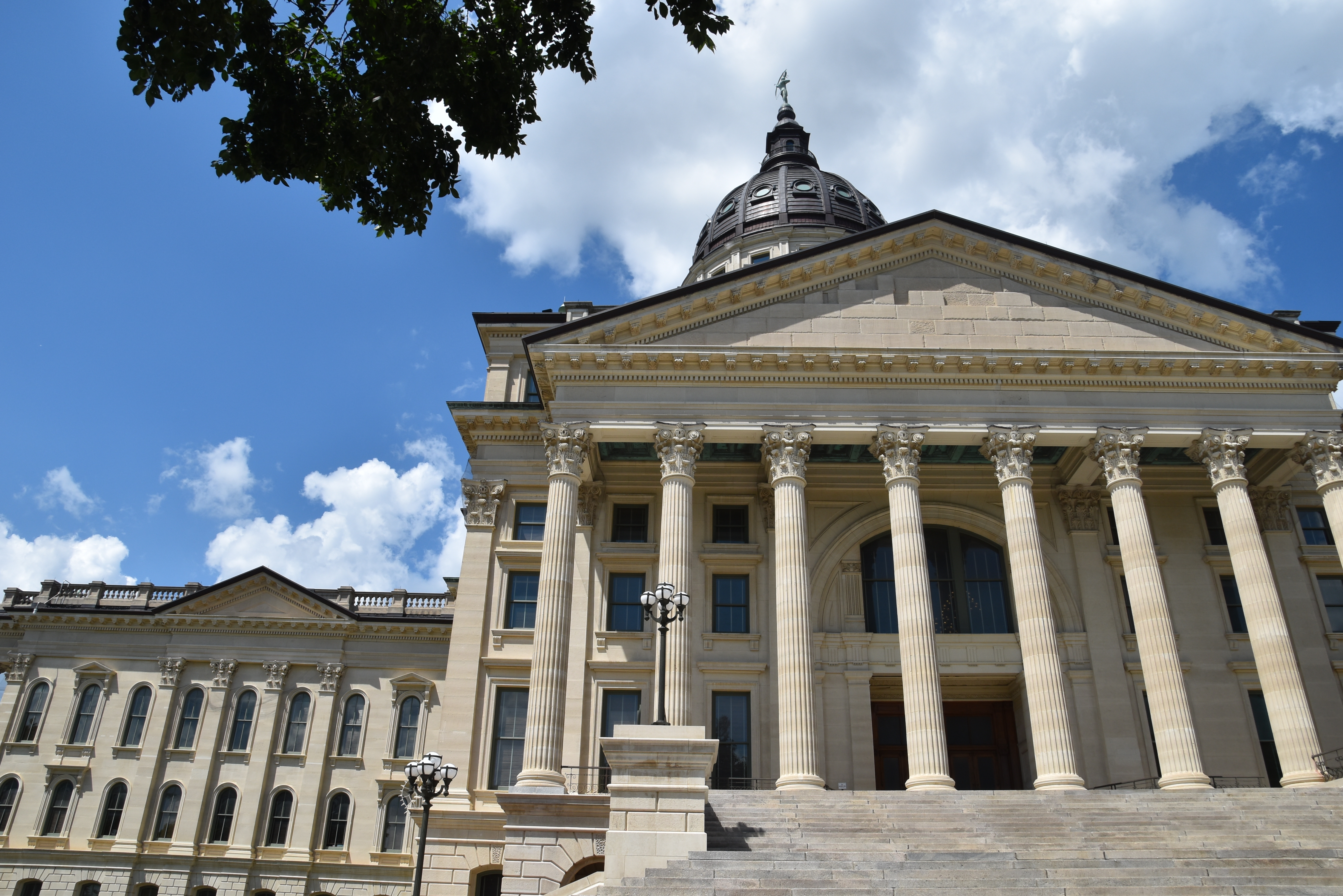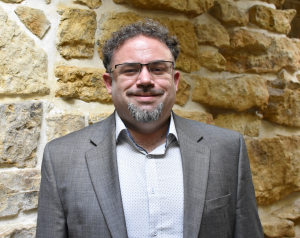Stay ahead of the curve as a political insider with deep policy analysis, daily briefings and policy-shaping tools.
Request a DemoKansas housing needs come into sharper focus during budget committee meeting

The Kansas Statehouse. (Credit: Matt Resnick)
The Legislative Budget Committee on Wednesday was apprised of the state’s housing needs, as well as economic incentives deployed by state agencies to bolster a sagging housing market in rural areas.
A report from the Kansas Housing Resources Corp. shows rural areas are in greatest need of a housing infusion. The agency estimates that rural areas of the state must develop 3,800 to 4,800 homes annually to spur the housing market and keep pace with an ever-changing employment landscape.
Northeast Kansas has the greatest need for new housing units, according to the report. It concludes the northeast region of the state needs 1,339 to 1,637 new or refurbished units annually over the next five years. The projections are based on a statewide housing needs assessment conducted in 2021 that does not include major metropolitan areas.
The report pinpoints several objectives that could spur housing development:
- Freeing up additional middle-income housing units throughout the state, particularly in rural areas.
- Diversifying the state’s housing stock to match local demographic and housing needs.
- Increasing reinvestment in older housing stock, including the rehabilitation of vacant units. According to the report, approximately 30% of existing housing stock was constructed before 1960.
- Extending housing security for existing affordable housing.
- Addressing the building trades labor shortage. The report notes that the construction of new housing and the rehabilitation of existing housing will be challenging to achieve without the workforce necessary to complete the work.
The Kansas Housing Resources Corp., according to the report, expanded its reach over the past two years, distributing funding awards for 4,826 homes throughout 53 counties, compared with awards for roughly 1,000 homes in 2021. The increased frequency of housing grants coincides with a “historic investment” in state funding directed at moderate income housing.
The committee was also briefed on programs used to address the state’s housing needs, including low and moderate-income housing tax credits,a first-time homebuyer program and tenant-based rental assistance and homeless services.
Rep. Troy Waymaster, R-Bunker Hill, inquired about grant funding for vacant homes. He asked if the Moderate Income Housing program could be used to facilitate the purchase of a housing unit for it to then be refurbished — or demolished and replaced with a new structure. He also asked whether the program extends to just a vacant lot.
“A lot of our smaller communities have vacant homes just sitting there,” Waymaster said. “So are they able to purchase that from the existing owner and then repurpose that home and sell it?”
Erin Beckerman, general counsel for Kansas Housing Resources Corp., told Waymaster that it’s dependent “on what the community wants to do” and that the program “allows for anything that looks like moderate income housing development.”
To illustrate, Beckerman said a vacant hospital in Wamego was recently repurposed into fully renovated living quarters via a moderate income housing grant and other housing tax credits.
According to the report, the Moderate Income Housing program distributed 100% of its $22 million in funding awards in 2022. Currently, 74% of those projects are under construction. Another $20 million was tacked on to the program via American Rescue Plan Act funding; 100% of those dollars have been distributed and 64% of the attached projects are under construction. Another $12 million was earmarked for the program by the Legislature during the 2024 session. The first round of the funding is slated to be distributed this fall.
Matt Resnick is a statehouse reporter at State Affairs Pro Kansas/Hawver’s Capitol Report. Reach him at [email protected].
